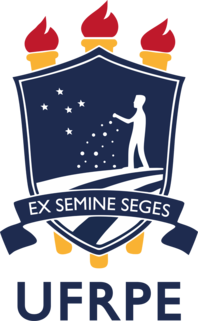Since 2016, PPGIA has the lines of research in Computational Intelligence and Modelling; and
Software Engineering and Computational Systems. Professors' knowledge of Artificial Intelligence and computer system development opens up many possibilities for creating innovative and sustainable solutions that contribute to social advancement and education.
Social commitment, innovation, and relevance are among PPGIA's values, and our mission is to apply Computing to solve real problems. We are aligned with UFRPE's mission of “sowing knowledge, innovation and inclusion through teaching, research, extension and administration activities, attentive to the complexity, plurality, and diversity of society's desires.” Among UFRPE's strategic goals are: Raising the quality of training aimed at facing the complex, plural, and diverse challenges of contemporary society; Developing scientific production and high-impact innovation; and Involve members of local, regional, and international external communities in prioritizing contextualized demands for scientific production and innovation. Among the specific goals related to graduate studies, we highlight here: Stimulate the innovative and entrepreneurial character in the research activities of UFRPE graduate programs. Thus, there is a focus on stimulating innovation aimed at social demands.
The research projects of PPGIA professors already reflect this program identity aimed at solving society's problems, e.g., Open Data Mining for Public Resources and Data Analysis; Computer Vision applied to industry, health, and safety; Using learning analytics to propose intelligent solutions for education; Development and Use of Educational Technologies; Analysis of educational data to support evidence-driven teaching management; Innovation in Intelligent Computing Methods for Health Promotion and Sustainability; Development of Intelligent Algorithms for Social Transformation: Innovative Solutions in Education, Health and Smart Cities; Digital Transformation as a driver of Innovation in the Knowledge Economy: applications in Education, Public Sector, Sustainability and Leadership. There is also an alignment of projects with several United Nations Sustainable Development Goals, such as Good Health and Well-being, Quality Education, Industry, Innovation and Infrastructure, and Sustainable Cities and Communities.

